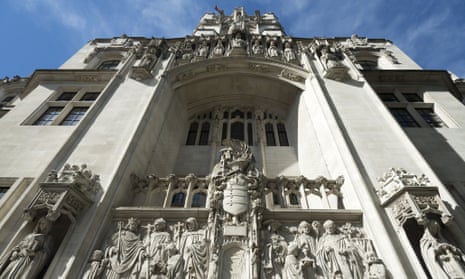Banks could face a bigger bill for mis-selling payment protection insurance after the City regulator said it was considering new rules on how customers should be compensated.
The Financial Conduct Authority statement means more customers could be eligible for compensation because of a supreme court decision. The court ruled in November that if a PPI seller failed to disclose to a customer that it had received a large commission from the product provider, the sale was unfair under the 1974 Consumer Credit Act.
The judgment on the case Plevin v Paragon Personal Finance paves the way for a new stream of customers to receive compensation for Britain’s biggest mis-selling scandal. The FCA’s response to the ruling indicates that if a PPI policy was otherwise sound the seller could still have to repay the customer if it had received a big, undisclosed commission.
Banks and other companies have paid £18.8bn in compensation on more than 9m policies since January 2011, with the total cost expected to reach £24bn. As recently as January, the Financial Ombudsman Service was receiving 4,000 new cases a week.
The City regulator said: “The FCA is considering whether additional rules and/or guidance are required to deal with the impact of the Plevin decision on complaints about PPI. The FCA will be engaging with relevant stakeholders in the coming months in respect of this and it expects to announce its views on this, including next steps, at the same time as existing work.”
Banks and other financial services companies sold about 45m PPI policies between 1990 and 2010. The policies were sold alongside loans and other credit deals with the promise that payments would be covered if borrowers were unable to work. But in many cases, clauses in the policies meant customers could never make a claim and some were unaware that PPI had been added to their loan.
In the Plevin judgment, the supreme court did not define what it meant by a large commission. 72% of the £5,780 premium paid by Susan Plevin in the was commission for the lender and the broker that sold her the loan, with the rest going to the PPI provider, Norwich Union.
Plevin, who was a widowed college lecturer aged 59, borrowed £34,000 from Paragon Personal Finance through the broker. She was told that commission was paid on the PPI policy but she was not told how much or which company received it.
The FCA said in January it was reviewing trends for PPI complaints. The regulator said any changes in light of Plevin would be part of that review and that it expected to report over the next few months on how the Plevin case will affect policies on which commission was paid.
Martin Lewis, founder of moneysavingexpert.com, said: “There are hundreds of thousands if not millions of people who have already complained about PPI and been rejected who may actually be due their money back. This latest case likely adds to that – with even more people brought into the mis-selling net, many of whom will have already been rejected.”
The FCA has cracked down on how companies compensate PPI customers before. Last August it ordered lenders to reopen more than 2.5m complaints because it suspected they were wrongly rejected or that customers had received too little compensation. In January it said it was looking at claims in greater detail and considering further measures to make sure they were paid.
